
Interview: Author Will Leitch Talks About Drawing Inspiration From Robert Altman’s ‘Short Cuts’
Leitch's latest novel, 'The Time Has Come,' follows a handful of characters through a city that's about to be shaken. He had a role model.
A veteran of sports and cultural commentary since the internet's golden age, Will Leitch has a long list of accomplishments that includes founding the influential sports site Deadspin and co-hosting the film podcast Grierson & Leitch with film critic and lifelong friend Tim Grierson. Leitch currently serves as a contributing editor at New York magazine and contributes regularly to The New York Times, MLB.com, and other publications, including his own newsletter (which is free and can, like The Reveal, be found on Substack). The author of six books, Leitch’s recent work includes How Lucky, an unusual thriller narrated by an unlikely, persistent sleuth with a physical disability that confines him to a wheelchair and makes speech impossible. Its fans include Richard Russo, Carl Hiassen, and Stephen King.
Leitch’s latest, The Time Has Come, follows several residents of Athens, Georgia as the city begins to crawl out of the COVID lockdown. It’s largely set during one ordinary day that takes an extraordinary turn that brings its characters together. For inspiration, Leitch looked to one of his favorite films: Robert Altman’s 1993 magnum opus Short Cuts, a portrait of Los Angeles and a cross-section of its residents that adapts the work of Raymond Carver. The Reveal spoke with Leitch via Zoom about that film, his new novel, and other topics.
Do you remember when you first saw Short Cuts?
Yes. Tim Grierson went to USC for film school and I went to University of Illinois and he used to constantly taunt me with how much earlier movies got to Los Angeles than to Champaign. But I was fortunate: they had some sort of special screening at the Savoy 14 outside of Champaign, so I got to see Short Cuts about two months before it came out.
I vividly remember getting to see that early. And of course, it was right on the heels of The Player. I just fell in love with movies in high school. So for me, it was a discovery to find, oh, the guy that made The Player made a whole bunch of movies back in the day. After I saw The Player and loved it, I got caught up on those. So I had been anticipating it pretty much like it was an Avatar or a Marvel movie coming out.
The sales pitch on it was that it was another Nashville. It had this huge cast. It was going to be another film with all these overarching characters. And it was almost Altman cashing in his chips after having The Player become such a big hit, that this was the movie that he'd been wanting to make for a long time but had been kind of in the wilderness professionally. The context that was lost on me in The Player — because I was so young, I was in high school when The Player came out — was I knew it was great, and I knew it was a good Hollywood satire but I didn't understand the subtext and the extra-textual elements, if you will, of Altman being the one to do that with all of his history with Hollywood and all the stuff he went through. To be honest, before The Player, the only Altman movie I had seen was Popeye.
By the time Short Cuts came out, by the time I was sitting down at that screening, it was very highly anticipated. I think that's probably the last time, maybe the only time, at least during my personal lifetime, that an Altman movie would feel like such a massive event. I mean, think about shortly after this, he makes The Gingerbread Man.
That was from a moment when seemingly every Grisham adaptation was a hit. And that one barely got released.
It's funny, my literary agent is David Gernert. He has a company called The Gernert Company, but he personally only has eight clients. John Grisham, and seven people who are not John Grisham. And I am one of the seven people, which is to say he has certain clients because he does so well off of John Grisham that he can kind of support us as the years go along.
When I originally told him I was going to write something off of my favorite Robert Altman movie, he's like, "Oh my God, Gingerbread Man, that guy was a nightmare. That guy was a total nightmare on that." And I was like, "Good, I'm glad. I'm sorry that happened to you, David, but I'm really, really glad that he was a nightmare on that.” Because you want Altman to be. You want Altman to be difficult. You want him to be prickly. You want his John Grisham adaptation to be a pain in the ass to John Grisham and everyone involved.
At what point did Short Cuts become an inspiration for this novel?
The thing that I love about Short Cuts… Obviously it has a lot of characters, but two things it does that I wanted to try out, that I got obsessed with storytelling-wise, were, one, the idea that you have all these disparate characters and you follow them all individually, but it doesn't really feel episodic. I always think of that early Short Cuts scene where they go into the cake shop and there's Peter Gallagher, and then there's Andie MacDowell, and then there's Anne Archer leaving. And those three characters have no interaction with one another the rest of the film. I love the idea of having characters who don't have connections with one another, but you know them intimately, even if they don't know themselves or each other intimately.
Then that adds into the second part, which I really loved, which is you come to a point where you have the climax of the movie and you realize, oh no, they're actually all living in the same place, and the thing that's happening is going to affect all of them. It's funny, when I talk about how Short Cuts inspired me for The Time Has Come, I often have to explain it. Because it's not available on streaming, a lot of people have not seen it. I'm like, “Okay, so Magnolia is kind of Paul Thomas Anderson's homage to Robert Altman. So the frogs…” The way the earthquake is in Short Cuts, it's kind of like the frogs in Magnolia.
You find all these different characters, and some of them interact with each other, some of them don't interact with one another, but in the end it's very vivid that no matter how disparate their lives are, no matter how different they may all be, they do actually all live in the same place under the same universe and there's a galactic event that reminds you, “Oh no, we're all in this together.”
Back before I did How Lucky, I used to just kind of imagine… I have a file of 50 different potential ideas that I've just been compiling and deleting for literally a decade. Probably more than a decade. I had this weird idea of following 32 different characters and then at the end of the book they all show up at the place where there's a terrorist attack. Which I thought was a little hackneyed and probably would've... I'm glad I didn't do it. But the idea kind of stuck with me. And I talked to my editor, because How Lucky did well enough that basically we signed a two-book deal with my editor and with Harper Books in which we kind of mapped out what the next books were going to be. I sent him some of the ideas, and originally I mentioned the 32-person idea, he's like, "32 people, definitely too much."
But I always liked the idea of disparate characters who are from different places but have a lot of things in common that they would not realize. They even may interact with each other without realizing it. But in the end, all have to come together under the same sun that we’re all under
.It feels like in some ways the two uniting events in Short Cuts and The Time Has Come play out differently. In your book there’s sort of a recognition of shared humanity. But that's not quite what happens at the end of Short Cuts. There’s less of a sense of resolution there, as satisfying as I find the end of that movie.
It's funny: we did Short Cuts for the Grierson & Leitch podcast, and we were both a little bit nervous. I watch the movie probably every three or four years, but I had not watched it in a while. The ending is shorter and more abrupt than I remembered. Whereas in Magnolia, it’s quite extended, in Altman it just sort of happens and there's the big shock. I always remembered Chris Penn [in Short Cuts] specifically. I think that's the moment where you realize there's something apocalyptic happening. And I remembered Lily Tomlin and Tom Waits, who by the way was 46 when this movie was filmed.
My God.
Yeah, that's very disturbing.:
But he's always been in, like, his mid-fifties.
Exactly, exactly. He's mid-50s now. He’s mid-fifties when he was in his twenties.
But certainly I remember their characters feeling like, “Okay, this is the big one, this is the end of the world.” I also remembered Tim Robbins yelling into a bullhorn, which Grierson says to this day, every time there's an earthquake, he feels like he needs to get a bullhorn out and yell into it. But in The Time Has Come and in Magnolia, it is definitely more protracted in a lot of ways. The story itself in Short Cuts is mostly over by the time the earthquake happens. Obviously it’s a culmination of the Chris Penn story, but when I was writing the book, I misremembered that Lyle Lovett and Andie MacDowell comfort each other after the earthquake, but that actually happens before the earthquake. I remembered the earthquake being the thing that forces all the culminating events to happen, but actually a lot of that story is done by then.
In some ways, your book is almost an incomplete act of reverse engineering. Short Cuts is a bunch of stories put together for a film. But you don't end up with a bunch of short stories. There’s always a connection.
Fiction’s funny, because I love those Raymond Carver stories. I had not read them before Short Cuts. So now when I read them, I'm like, “Oh, the movie, that's different from the movie.” What's really fun about those stories is watching the way Altman does it. The stories are not set in Los Angeles, and it's a very Los Angeles movie. But it's a Los Angeles movie where, other than, say, maybe Robert Downey Jr.'s character who works in makeup, no one works in the entertainment industry. This is not Hollywood. They're all kind of on the outskirts. They all fit in Carver's world while also being in Los Angeles.
Also if you wanted to recreate early ’90s Los Angeles, you could probably do it from that film. Were you going for something similar with the Athens of The Time Has Come? Because it is very much a book of a particular moment in time.
June 2021. It's right after everyone's gotten their vaccines. We're like, “All right, we're through it, we did it.” It's before Afghanistan goes to shit, before “Let's Go Brandon” and so on.
I certainly wanted it to reflect that a little bit. Not so much to be a pandemic book, because I don't think it is a pandemic book. But I think that at a certain level, [I wanted to depict] people having gone through a huge both individual and collective trauma, and trying to figure out who they are afterwards. And some people's traumas are worse. Everyone's had their different sort of experiences. But the idea that after you've gone through this, who are you now? There's a moment where one character, Jason, talks about… I think a lot of people had this experience of when the pandemic first hit and everything stopped and everybody freaked out, but then we're like, “Hey, I actually like the people that live in this house. I actually like these people and we all actually kind of enjoy each other and like that.” So by trauma, I don't necessarily mean that everyone had some tragedy happen, but we all just had this stop, and now they're coming out of that, or think they're coming out of that.
It’s meant to be not just a sliver of time, but also a sliver of a place. One of the things I love about Athens and I wanted to capture about it is I lived in New York for 13 years before I moved into Athens, and here my best friends, one's a preacher, one owns a board game cafe, one's a lawyer, one's a professor, and in New York, my five friends worked in media. And I love my friends, I love my friends. I hang with them all the time. But one of the things that's great about a college town is it's small but global. So you get all of these different types of people who all have to interact with one another. We all kind of live in our silos, and live in our own little places. In Cobble Hill, Brooklyn, my silo extended to my entire life if I wanted it to. And that can't happen here. I run into people that I disagree with all the time, and people that are different than me all the time. And I think it's been really, really healthy for me and helped me not just understand viewpoints different than my own, but even have mine tested and then have them come out even a little stronger and a little bit more thoughtful. And so I wanted to capture that.
Will Leitch’s The Time Has Come is in stores now. Short Cuts, sadly, remains unavailable to stream but currently remains in print on Blu-ray and DVD via a fine Criterion edition.




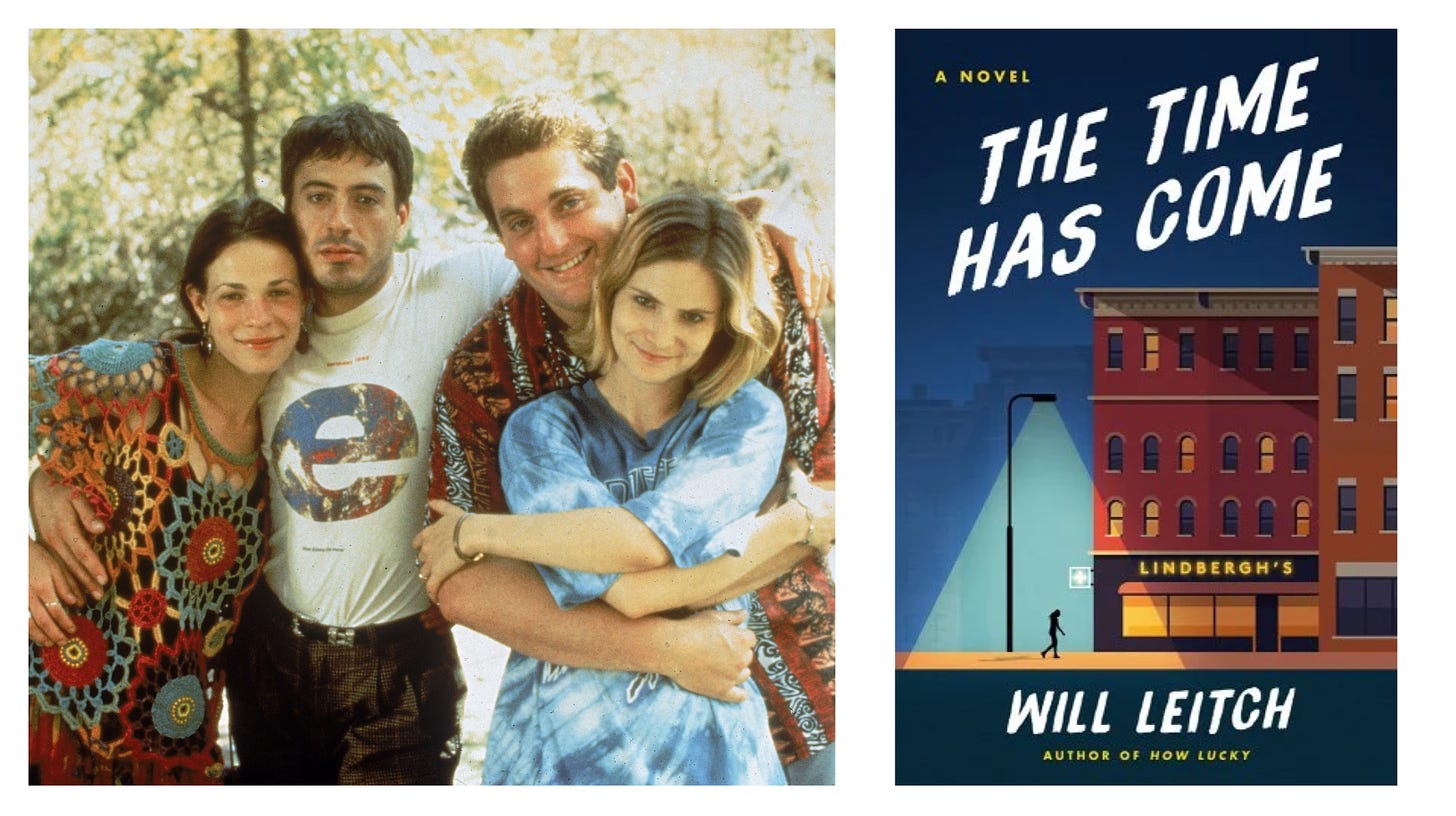
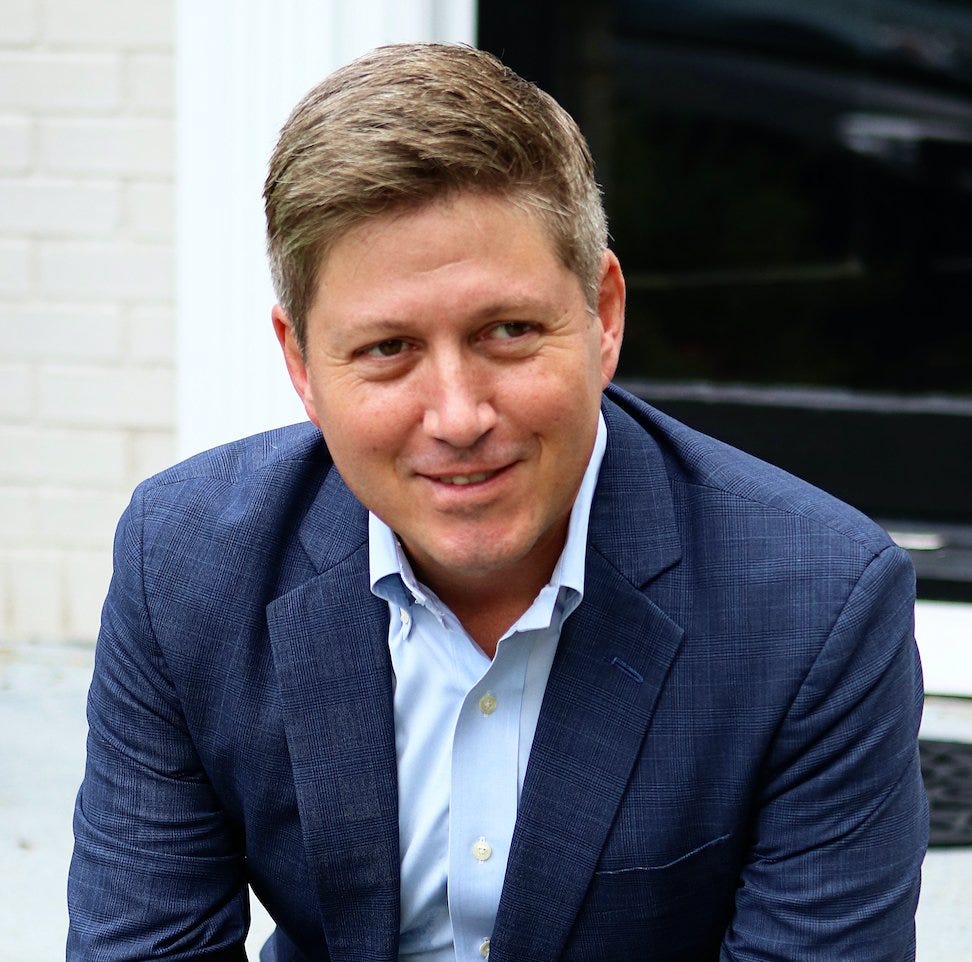
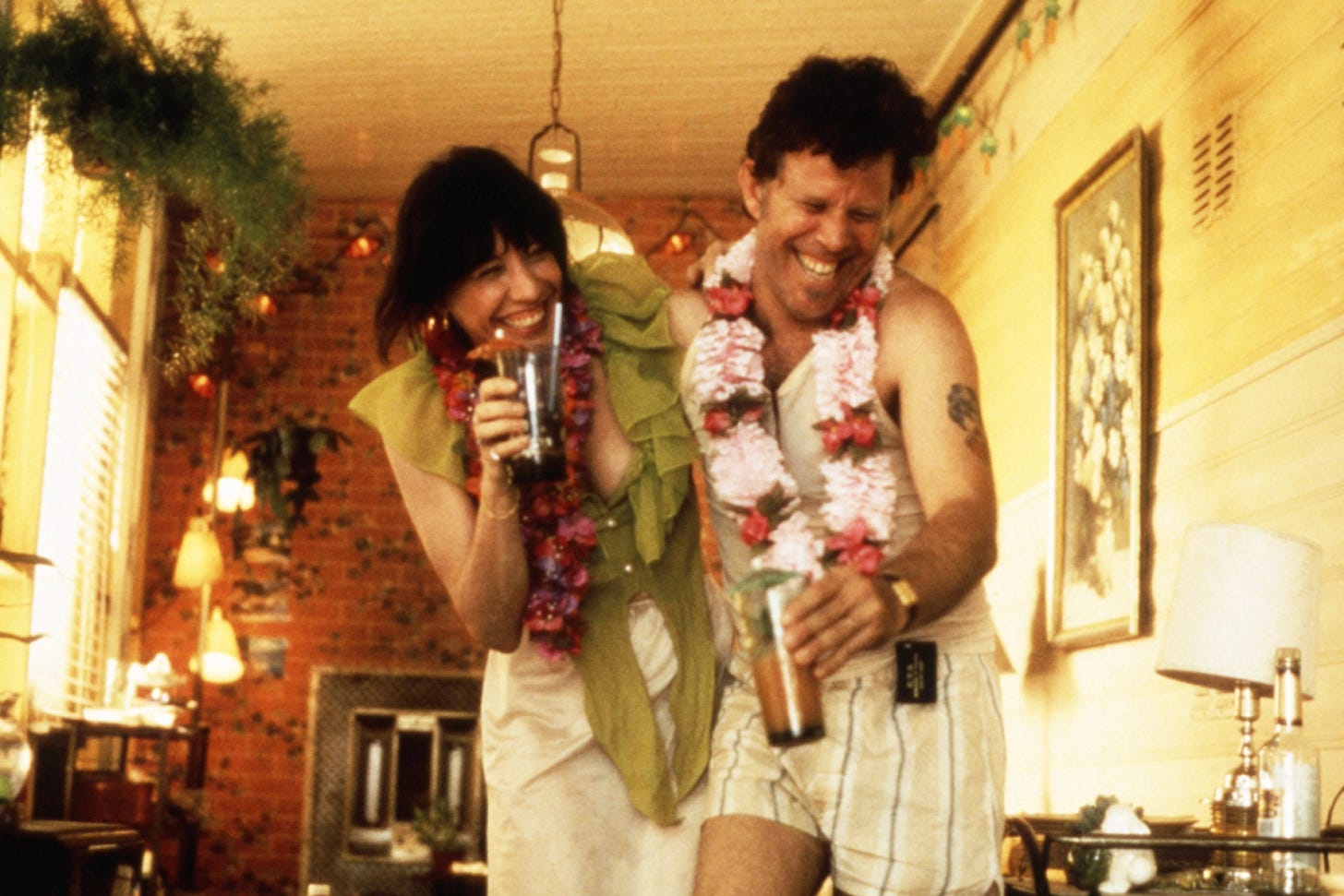
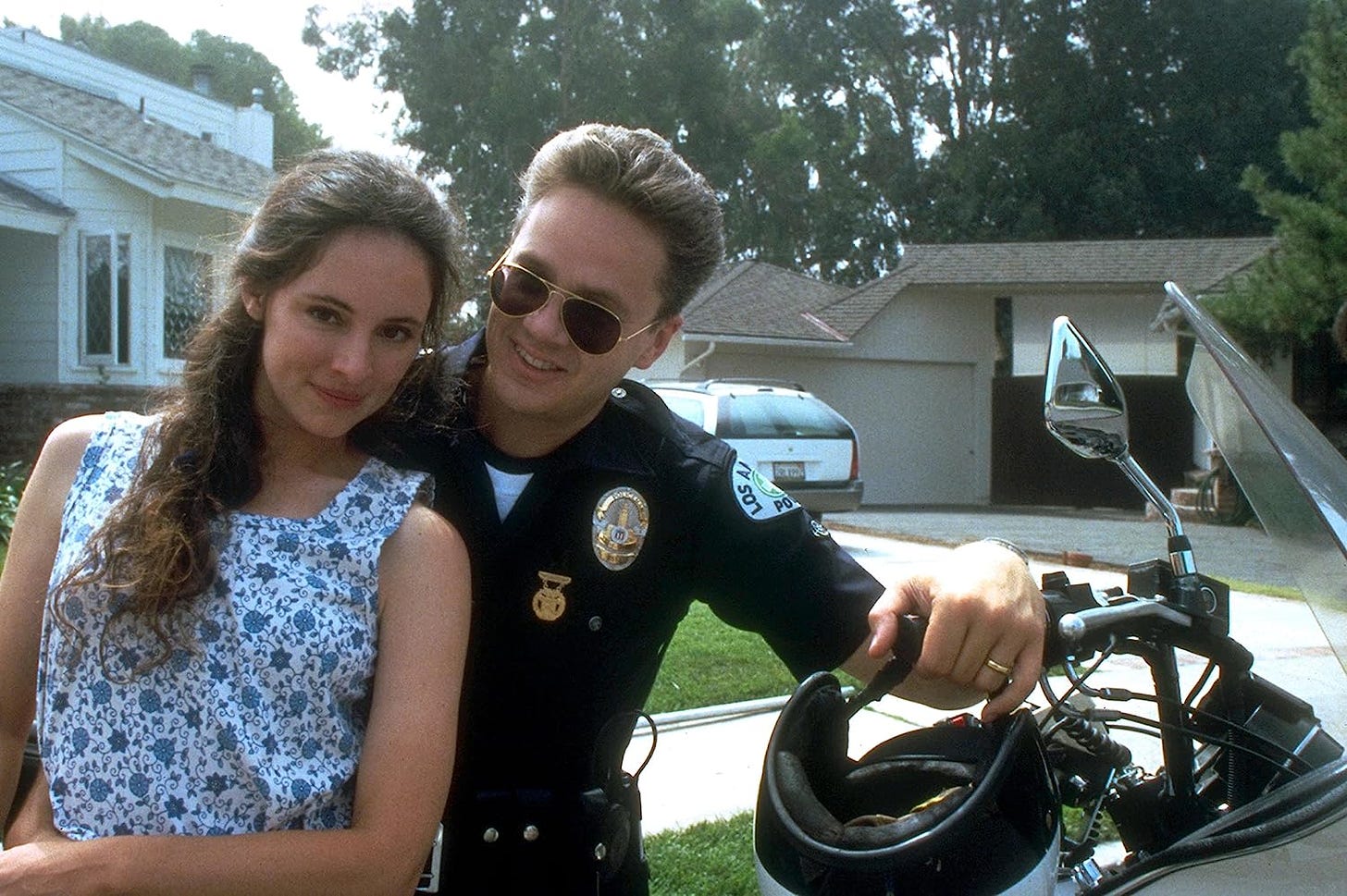








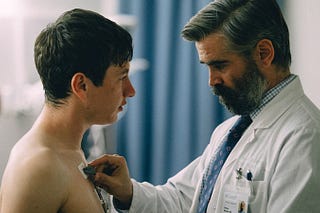


The still of Tom Waits and Lily Tomlin reminded me of my favorite moment in Short Cuts: the two of them cackling as they stand in the doorway of the mobile home when the earthquake hits.
Reading the introduction, I felt like a complete idiot---Leitch sounds right up my alley in every possible way, yet I'd never heard of him. "At least this is the stupidest you will feel while reading the article," I consoled myself.
Then your interview with Leitch started, and - look, Altman lost me around POPEYE. So I'm maybe not as deeply conversant in his '90s stuff as some might be.
But.
I had not realized that "Short Cuts" and "The Player" were two different movies.
I've never seen either, so I just kind of thought "The Player" was this movie made up of 22 short vignettes where Hollywood people are players. People would mention "The Player", I'd think, "Oh, right, that inspired a Simpsons." People would mention "Short Cuts", I'd think, "I should see that, I love stories about Hollywood player types." "So why did you think people were calling this one movie by two different titles?" I don't know, I never put that much thought into it. Or, evidently, any.
Anyway, great piece. Thanks for introducing me to an author I'm sure I'm going to love and also to what are apparently two different Robert Altman movies. I'll get around to watching them as soon as I catch up on that one movie he made about army doctors in Nashville.